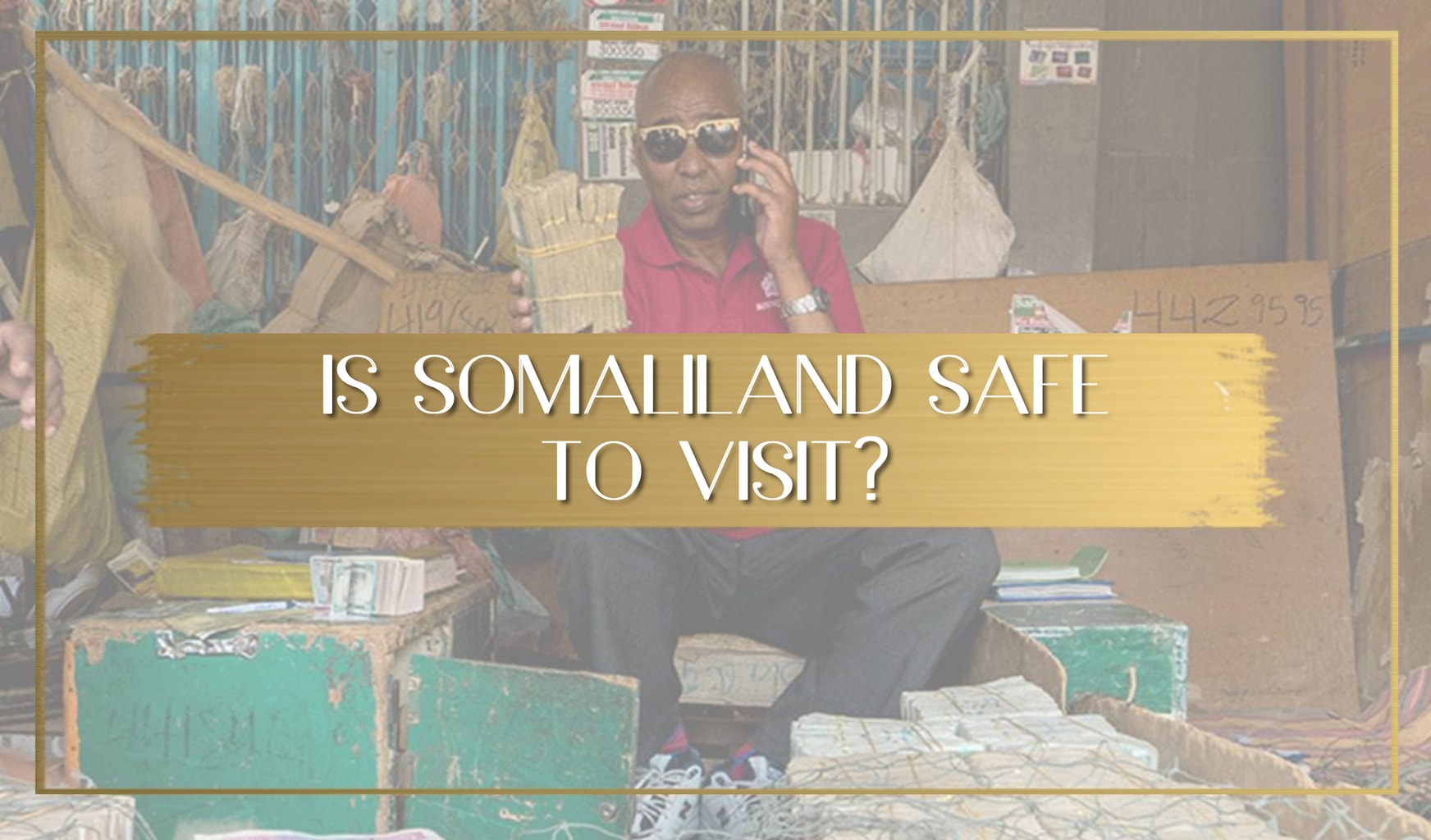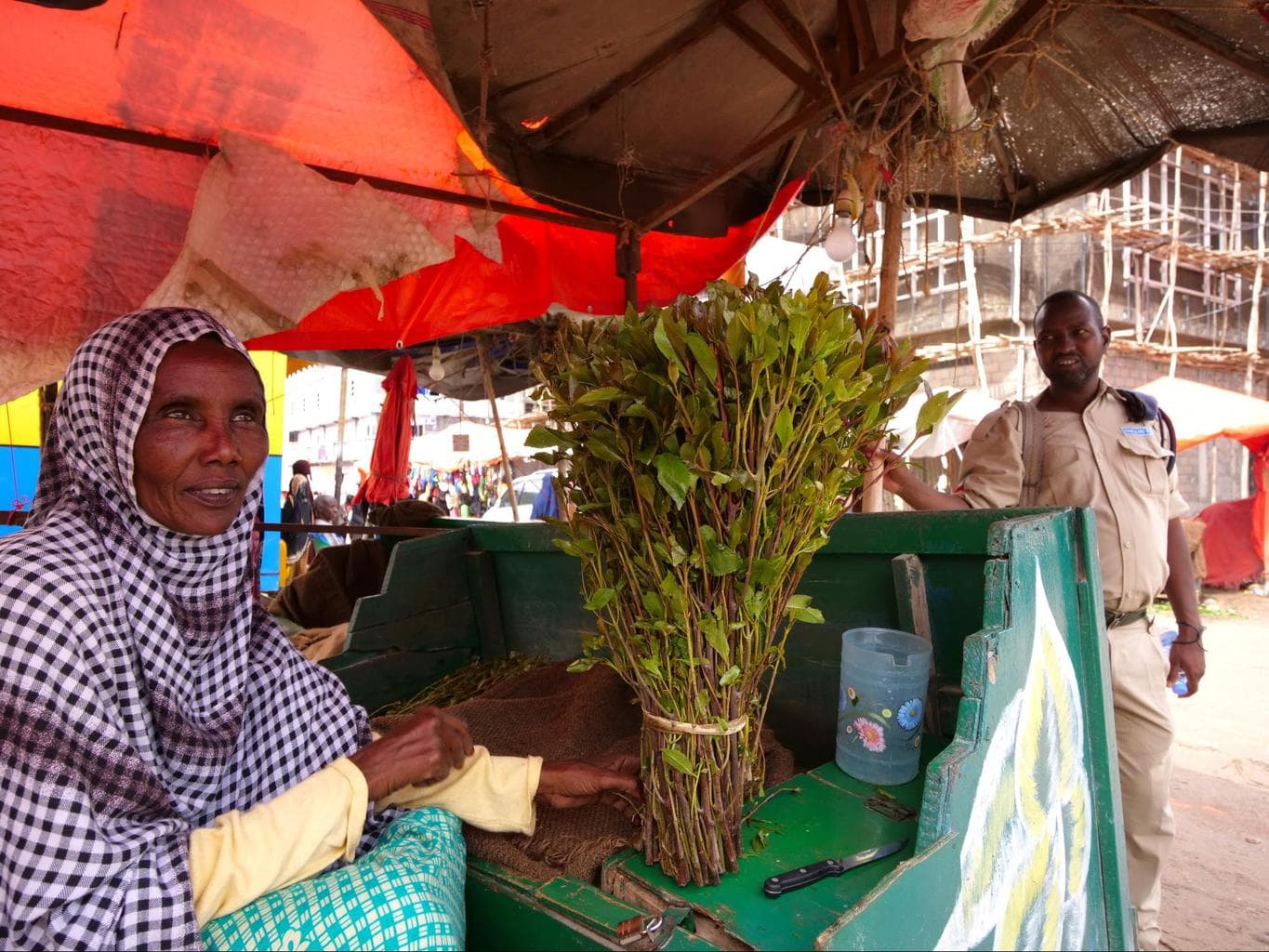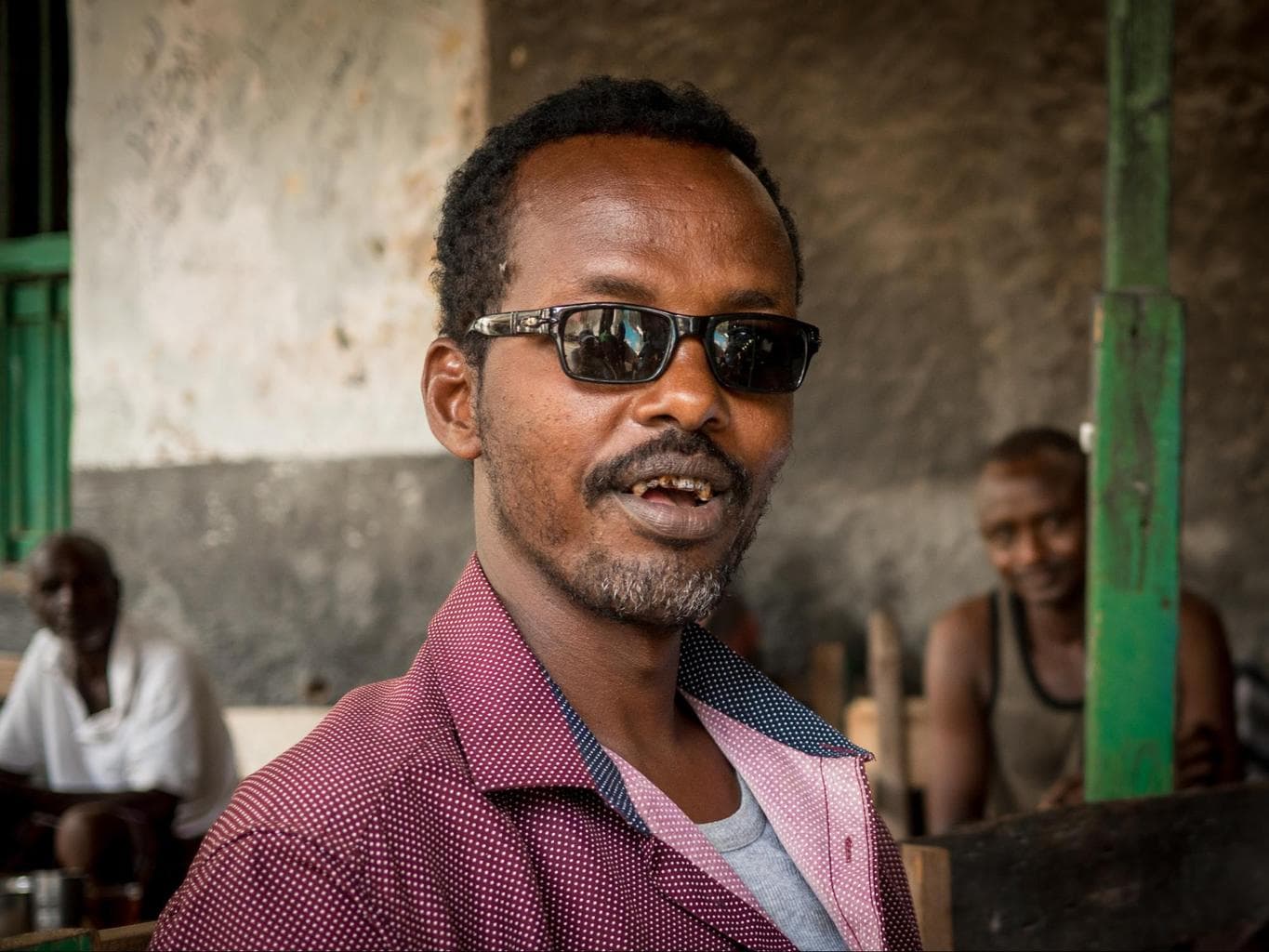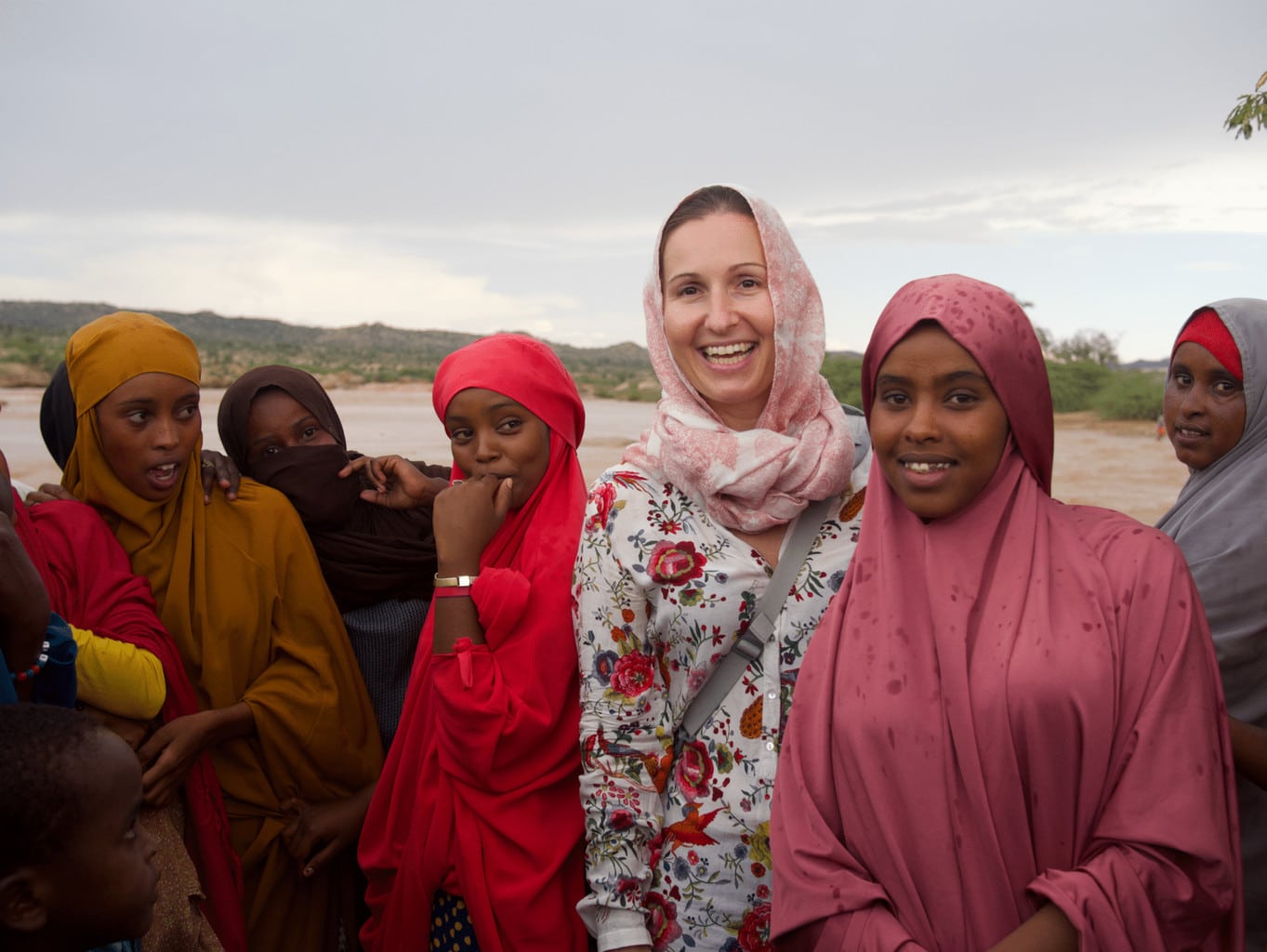
I find questions about safety to be quite hard to answer as they depend not only on the facts and figures but also on everyone’s experiences, approach and tolerance levels. Whether Somaliland is safe to visit and whether Somaliland’s safety is acceptable to you is a very personal decision nobody else can make.
For example, I have been in many dangerous situations before because of my professional career in emerging markets, my time spent working across 25+ countries in Africa and the Middle East and my time living in Joburg where neighbours were tied and attacked by armed burglars twice in my eighteen months there.
It is therefore harder for me to rule out any country because of its safety record, although I do draw the line at Mogadishu, Baghdad, Sana’a and Kabul at the time of writing.
However, most of my friends would not even consider going to the majority of the Middle East or Africa because of safety, even to countries like Jordan where there have not been any attacks for years.
Most people look at travel advisories and crime data but even that is not enough to make decisions without understanding the local realities of a place. The crime rate and the threat of terrorism are two objective measures of safety but they will not tell you how much danger you will really be into.
The objective safety levels in El Salvador would keep anyone away. The country is the murder capital of the world. But when you look at the data you realise that crime happens mostly in two cities and among gang groups related to drug trafficking. As a tourist, the risk of anything happening to you is limited unless you are in the wrong place at the wrong time.
So I prefer to lay out the facts about safety in Somaliland and then talk about my personal experience so you can decide if you think Somaliland is safe enough for you.
Crime levels in Somaliland
As Somaliland is not a recognised state, there are no statistics about the level of crime, the murder rate or even the threat of terrorism. In fact, the Global Peace Index does not include Somaliland as data is not available. Instead, global figures for Somalia as a whole are commonly used by the media, the international organisations and the potential visitors.
However, there is a huge difference between Somaliland and Somalia in terms of the political situation, stability and safety.
For example, I would not consider going to Mogadishu at this time, especially after having visited Somaliland, because of the completely unpredictable security situation, the active Al-Shabab operations and the lawlessness of the place.
Over 450 people were killed in terrorist attacks in Somalia in 2017 alone. The deadliest attack ever in Somalia took place in November 2017 and killed 300 people. In Somaliland, the last terrorist attack was in 2008 and the government has managed to keep the country largely safe since then. However, the risk remains and all major foreign offices and services warn international travelers against bringing down their defenses.
Why is Somaliland significantly safer than Somalia? Because of its autonomy and independence from Mogadishu.
Somalia has not had a government one can speak of since the civil war started in 1991 whereas Somaliland took this opportunity to create its own government, parliament and rule of law, quite successfully for a country that is not recognised and has no monetary tools, budget or international aid.
The last parliamentary elections in Somaliland took place in November 2017 and were considered by international watchers as largely democratic and peaceful. People have organised themselves to provide order and peace and migrants are returning to help rebuild the nation while they await for international recognition.
However, Somaliland is not entirely free of crime risk. The dangers are mostly related to armed militia groups, kidnappings and terrorism. Petty crime is low and you should not be worried about pickpockets, especially if you have your own police escort (see next section).
Terrorism levels and the risk of kidnapping are high in Somalia but low in Somaliland as the Al Shabab is mostly active in Mogadishu and there haven’t been any cases for years. This could obviously change anytime as borders are not a deterrent to terrorism.
Police escort in Somaliland

One of the most unique parts of traveling in Somaliland is the mandatory police escort all visitors outside of Hargeisa get. It reminded me of the North Korea minders we had, although the police escort in Somaliland is not really minding you but the locals.
Because of the country’s claim to independence in 1991 and the fact that it has been seeking recognition from the international community for decades, the government is very keen on improving its image globally and portraying the country as stable and respectable.
As a result, and since the murder of three aid workers in Mogadishu in 2003, all tourists that wish to travel outside of Hargeisa are obliged to get police escort from the elite Special Police Unit (SPU) which will come in the form of an armed guard with a knock-off copy of an AK 47, a driver and a car which will follow you around.
This is not an armoured car of any sorts but rather a small one. This service is not free and you will have to pay for it. If you wish so, you can also request for the escort to be with you for the entire trip, including Hargeisa. Our guide had made arrangements for that so we even explored Hargeisa with the police escort.
Although this should be quite reassuring, it is not as good as it sounds and it will not make you feel like you are fully protected from anything that may happen.
During our trip we had three different policemen, one for every day, and all seemed pretty useless at keeping any locals from yelling at us. They spent their time chatting away with locals instead of actually keeping an eye on us and seemed totally careless and uninterested.
One of them was so blasé that our guide had to fight with him to make sure he actually stood by our side at the livestock market when we were clearly surrounded by far too many herders.
So it is true that the escort carries a mean-looking AK 47 knock-off and wears official fatigues but not only are they not really interested in doing their job but also the level of respect for police, law enforcement and government officials in Somaliland is surprisingly low.
We saw a policeman trying to get a driver to enter the police station to pay for a road permit and the driver refused, instead intending to carry on with his day. The driver only acceded to go in when the mob of cars in the traffic jam he was creating forced him to. Our SPU escorts were regularly challenged by the locals and not actually able to impose their will.
Situations like this were repeated over and over throughout our trip. Our escort helped, but it was not like it made us feel untouchable. People still yelled at him and argued against our cameras demanding money at times.
Bottom line, the police escort provided a bit of relief and help to navigate crowded areas when we wanted to take photos (i.e. the money market, the livestock market, Berbera) but was by no means going to keep us safe should anything happen. They would probably be the first to run.
Travel advisory for Somaliland
Now that we have more clarity on the crime and terrorism figures, let’s look at the travel advisories for Somaliland.
The UK Foreign Office advises “Against all but essential travel to Somaliland”, as opposed to advising “Against all travel” to the rest of Somalia. This means that they expect no British nationals to be in Somalia and that those in Somaliland should be there only for absolutely necessary reasons like if they work for an NGO or are carrying out humanitarian missions.
The US alerts “Do not travel to Somaliland”, full stop. This goes on to provide useful tips such as “(…) appoint one family member to serve as the point of contact with hostage-takers, media, U.S. and host country government agencies, and Members of Congress, if you are taken hostage or detained” or “Establish a proof of life protocol” which I am sure discouraged more than one person from visiting.
If you were to take the travel advisories from either of the two you would probably not travel to Somaliland.
Lastly, let me tell you how I felt as a white woman in Somaliland not traveling alone.
My experience as a white woman in Somaliland
As I said at the beginning, everyone’s experience, looks, expectations and even dress code plays an important role in how safe we feel in a place. For example, in El Salvador, as a solo female traveler, I felt safe at all times, and this is the country with the highest murder rate in the world. You’re even accompanied by police when hiking the Santa Ana Volcano. In Somaliland, however, I did not feel safe at all and this is a first for me after 100 countries.
I have never, not even in the perceived most dangerous places in the world like Pakistan where I traveled alone, have I ever felt in danger. In Somaliland, I didn’t feel comfortable in the streets. I wasn’t scared, but I felt like something could happen anytime.
This was not so much related to the risk of terrorism but to the way people reacted to me and my friend and the comments and experiences our guide had which corroborated what we felt.

What was most surprising about my feeling of safety in Somaliland was not the real risk of crime or terrorism but the antagonising and polarising experiences we had with the locals who all had one perception or another about foreigners.
There were two types of reactions from the locals. Some of them had lived abroad, spoke English and chatted us up in a friendly manner. They approached us with a big smile, asked where we were from and talked to us about Europe and the UK.
They wanted their photo taken, they wanted to show us their goods and they wanted me to take photos with them. They also had relatives and friends in the UK, Somalilanders who had emigrated in search of better opportunities and who were sending money to their families in the country.
There were also locals at the other end of the spectrum. They would literally yell at us either because I was not wearing the traditional clothes or because I was wearing trousers (which women do not wear) or mostly because they had a very negative reaction to white people, especially Americans.

They demanded money for being there, for taking photos or for exploring the streets of Berbera. They told us to leave, they blamed us for the country’s chaotic situation. The level of animosity towards Westerners was quite unique.
We soon realised this was motivated by the fact that they thought we were American and, as soon as we qualified we were British and Spanish, some of them seemed to calm down a little and were more welcoming. I have not felt this level of hatred anywhere else.
This meant that walking around in crowded areas like the market was a rather intimidating experience. Before knowing this and shortly after our arrival, we went out for a walk in Hargeisa’s central market without the police escort or the guide and quickly realised we could be lynched if we came across someone in the wrong state of mind or who had chewed too much khat and was in the wrong frame of mind. When we returned with the police escort we felt a bit better and they helped appease a bit of the aggressiveness but the reactions were the same.
Was this an isolated experience? Were we unlucky?
I do not think so as I read the accounts of many other tourists and pretty much everyone had at least one incident similar to the ones we suffered. For some reason, we were the target of almost as many bad experiences as good ones.
Considering how many of the two we had and how polarising being a Western tourist in Somaliland felt, I expect this not to change in the near future as the country’s security and terrorism threats continue and the Western economies fail to recognise Somaliland as an independent country.
- Check if you need a visa, get help processing it at iVisa.
- Never ever leave without travel insurance. Get affordable coverage from World Nomads or long term insurance from Safety Wing.
- I find all of my flights on KAYAK. Check their Deals section too.
- Search for all your transportation between destinations on the trusted travel booking platform Bookaway.
- I book all my day trips and tours via GetYourGuide, they are the best and their tours are refundable up to 24h in advance.
- Get USD35 off your first booking with Airbnb.
- Compare hotels EVERYWHERE at HotelsCombined and book with Booking.com.
- Compare car rental prices at Rentalcars.com
